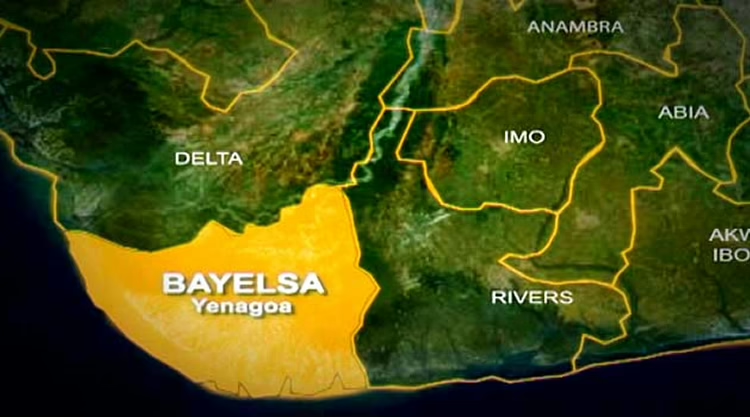As reports of a Human Metapneumovirus (HMPV) outbreak emerge from China, Malaysia, and other regions, the Nigeria Centre for Disease Control (NCDC) has issued a guideline regarding the situation in Nigeria.
While the country has not recorded any cases of HMPV, the NCDC acknowledged that it has not previously conducted tests for this relatively new virus. In response to the recent global alert, the NCDC has now incorporated HMPV testing into its regular Sentinel services.
The Nigerian Institute of Medical Research (NIMR) has also responded to the outbreak, assuring the public that there is currently no immediate threat to Nigeria. The institute emphasized its commitment to its role as the leading research agency in the country and is prepared to act should an HMPV outbreak occur.
NIMR has confirmed its active collaboration with relevant government agencies and institutions to bolster Nigeria’s readiness for potential health emergencies. This proactive approach aims to ensure that the nation is well-prepared to handle any health crises that may arise from the HMPV outbreak.
The World Health Organization (WHO) said that it has been closely monitoring the situation and has sought to alleviate public concerns regarding HMPV. First identified in 2001, HMPV is not a new virus; it is known to circulate during the winter months. The WHO has advised against imposing travel and trade bans, emphasizing that such measures are unnecessary at this time.
According to the WHO, many countries in the Northern Hemisphere experience an increase in acute respiratory infections during this season. These increases are typically attributed to seasonal epidemics of respiratory pathogens, including seasonal influenza, respiratory syncytial virus (RSV), and HMPV, as well as mycoplasma pneumoniae. The organization noted that routine surveillance for these infections is conducted in many countries, allowing for the monitoring of trends in respiratory illnesses.
Recent data indicates that in several temperate regions of the Northern Hemisphere, rates of influenza-like illness (ILI) and acute respiratory infections (ARI) have risen above baseline levels, consistent with seasonal patterns. The WHO has reported elevated seasonal influenza activity across many countries in this region. While trends in RSV detections vary, most regions have seen a decrease, with the exception of North America.
In China, there have been alarming reports of a surge in HMPV cases, leading to concerns about hospitals being overwhelmed. HMPV is a common respiratory virus that typically circulates from winter through spring. However, not all countries routinely test for HMPV or publish data on its prevalence, which complicates the understanding of its impact.
Advertisement
The WHO has clarified that while some HMPV cases can lead to hospitalisation due to bronchitis or pneumonia, the majority of infections result in mild upper respiratory symptoms akin to those of the common cold. Most individuals recover within a few days.
Data from China, covering the period up to December 29, 2024, shows a notable increase in acute respiratory infections, with rising detections of seasonal influenza, rhinovirus, RSV, and HMPV, particularly in northern provinces. The WHO has stated that this increase in respiratory pathogen detections falls within the expected range for this time of year during the Northern Hemisphere winter.
The WHO has maintained communication with Chinese health officials and has not received reports of any unusual outbreak patterns. Chinese authorities have indicated that their healthcare system is not overwhelmed, and no emergency declarations or responses have been triggered. The WHO said it would continue to monitor respiratory illnesses globally through collaborative surveillance systems and will provide updates as necessary.
In light of the current situation, the WHO has recommended that individuals in winter-affected areas take standard precautions to mitigate the spread of respiratory pathogens, particularly among vulnerable populations. Those experiencing mild symptoms are advised to stay home to prevent infecting others and to rest. Individuals at high risk or those with severe symptoms should seek medical attention promptly.
The WHO also urged the public to consider wearing masks in crowded or poorly ventilated spaces, cover coughs and sneezes with tissues or their bent elbow, practice regular handwashing, and receive recommended vaccinations as advised by healthcare professionals and local public health authorities.
Furthermore, the WHO advised member states to maintain surveillance for respiratory pathogens through an integrated approach, taking into account each country’s context, priorities, resources, and capacities. The organization has published guidance on integrated surveillance and updated its recommendations on assessing the severity of influenza epidemics and pandemics, including their impact on healthcare facilities.
Based on the current risk assessment, the WHO has restated its advice, saying that travel or trade restrictions given the ongoing trends in acute respiratory infections are unnecessary.
As the situation evolves, health authorities in Nigeria and around the world remain vigilant in their efforts to monitor and respond to respiratory illnesses, ensuring public health safety remains a top priority.











